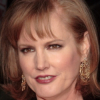Melissa Rosenberg

Melissa Rosenberg
Melissa Anne Rosenberg is an American screenwriter. She has worked in both film and television and has been nominated for two Emmy Awards, and two Writers Guild of America Awards. She won a Peabody Award. Since joining the Writers Guild of America, she has been involved in its Board of Directors and was a strike captain during the 2007–2008 Writers Guild of America strike. She supports female screenwriters through the WGA Diversity Committee and co-founded the League of Hollywood Women...
NationalityAmerican
ProfessionScreenwriter
Date of Birth28 August 1962
CityMarin County, CA
CountryUnited States of America
I remember when I was a dancer and I had to do this performance and I was really nervous about it, and I happened at that moment to go see 'Flashdance.' I mean, it's silly, but I walked out of that movie going 'what a feeling!' I walked out with confidence.
TV is the place for writers to live. This is where you have creative control and you're constantly writing. 'Twilight' had almost a TV schedule to it. I was constantly working on these projects. There was not a whole lot of lull but I've gone onto other feature projects that's like, 'Okay, I'll get back to you on notes.'
Studios, because they are investing a great deal of money in movies, they want a guarantee that when they hire somebody that person can deliver for them. Everything is fear based, so they pigeonhole people. But I've written everything, from Westerns to sci-fi to dramedy, I've done it all.
With 'Darkly Dreaming Dexter,' we as a group of writers had to take a rather thin novel and spread it out over the course of 12 episodes, and not only 12 episodes, but lay in story for everyone that's going to take you through five years.
You don't know what someone's going to walk away from a movie with, but you hope it's something positive, but if nothing, you want them most basically to be entertained and engaged. That's your job. But you also hope to give them something to chew on or maybe some insight into the human existence, you hope a little bit. Not to sound too lofty.
In 'Twilight,' you're setting up the world. You're introducing the world, and I was also writing in a vacuum because I didn't know who the actors were going to be. Now you're going to 'New Moon' and 'Eclipse,' and I could write specifically to them in my mind. So it becomes a more comfortable world.
My plan is, I'm in the process of creating a production company called Tall Girls productions. I want to be doing both film and television. I'll never leave television. I just love working in it too much.
Well, I never got into the young adult headspace. With 'Twilight,' they are pretty adult themes, aside from maybe the first one, but even that. They're very adult themes, actually, particularly as the characters age. I never wrote for young adults. I wrote for myself, as an audience.
That was, in writing the 'Twilight' script I had about five weeks to write that. I'd taken about a month to write the outline and then it was slam into a script and write it down fast because the writer's strike was looming.
Women tend to be categorized as Madonnas or whores.
Showrunning is not a one-man job; it's literally impossible to do for one person. I have learned the hard way now from two seasons, one with Red Widow, and this, I can't control everything. I certainly have tried, but having an incredibly strong team around you, surrounding yourself with incredibly talented people, that is the trick, and I certainly had that for the first season here of Jessica Jones.
Women, in general, are very passionate fans, and that's what you love about them.
I've really been very focused on Jessica Jones. Our series was well on its way to being created by the time we even saw scripts from Daredevil, and Luke Cage didn't even have a showrunner hired then. Jeph Loeb [Marvel TV boss] is the master of the connective tissue, but each series exists in its own world.
Jessica Jones is its own animal, I think each one of these series is its own animal. There is some connective tissue, in terms of referencing the Marvel Universe, but it glances off of the other stories.